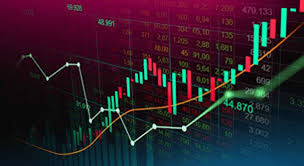
Forex Trading vs Stock Trading: Which is Right for You?
In the world of financial markets, traders often find themselves at a crossroads when choosing between Forex trading and stock trading. Both markets offer unique opportunities and challenges. Understanding the fundamental differences between Forex and stocks can help traders make informed decisions. In this analysis, we will explore various aspects of both trading styles, including liquidity, volatility, transaction costs, and potential returns. By the end, you should have a clearer idea of which market aligns best with your trading goals and preferences. To dive deeper into trading strategies and resources, visit trading forex vs stocks Trading PH.
1. Introduction to Forex and Stock Trading
Forex trading, also known as foreign exchange trading, involves the buying and selling of currency pairs. The Forex market is the largest and most liquid financial market in the world, with a daily trading volume exceeding $6 trillion. In contrast, stock trading involves buying and selling shares of publicly traded companies. The stock market is more defined, with strict regulations and a variety of exchanges where stocks are listed. Each market provides unique opportunities, and the choice between them depends on numerous factors including your trading style, investment goals, and risk tolerance.
2. Market Hours and Accessibility
One of the significant advantages of Forex trading is its 24-hour availability, operating five days a week. This constant accessibility allows traders to engage in trading anytime, accommodating different time zones and schedules. Conversely, stock markets operate on specific hours, usually from 9:30 AM to 4 PM in the United States, limiting the time available for trading activities. For traders who prefer flexibility, Forex is often the more appealing choice.
3. Liquidity
The liquidity in Forex trading is significantly higher than in stock trading. The sheer volume of currency being traded daily ensures that traders can enter and exit positions with relative ease, often without major price fluctuations. High liquidity reduces the likelihood of slippage, which can be a concern for stock traders, particularly when trading in less popular or more volatile stocks. This liquidity makes Forex a favorable environment for short-term trading strategies, such as scalping and day trading.
4. Volatility
Volatility is a critical factor in trading, as it can impact the risk and reward potential. Forex markets can experience significant volatility, especially during major economic announcements or geopolitical events. Currency pairs can move rapidly, offering lucrative opportunities, but also presenting risks for traders who are not prepared. Stock markets can also be volatile; however, volatility often varies significantly between different stocks based on company performance, sector trends, and market sentiment. Understanding volatility is essential for risk management and strategy development in both trading arenas.

5. Transaction Costs
When comparing trading costs, it’s crucial to consider spreads and commissions. In Forex, spreads (the difference between the buying and selling price) are generally lower than the commissions associated with stock trading. Brokers often charge higher commission fees on stock trades, impacting overall profitability, especially for active traders. Additionally, Forex brokers tend to offer leverage, allowing traders to control larger positions with smaller amounts of capital, which can amplify both potential gains and losses.
6. Potential Returns and Risks
Both Forex and stock trading present opportunities for high returns, but they come with corresponding risks. Forex traders can benefit from high leverage, which allows them to control larger positions; however, this also increases the risk significantly. On the other hand, stock traders may see steadier and more predictable returns, particularly if they focus on long-term investments in established companies. It’s crucial to assess your risk tolerance and financial goals when considering potential returns in either market.
7. Trading Strategies
Different trading strategies are applicable in Forex and stock trading, often influenced by market dynamics. In Forex, strategies such as scalping, day trading, and position trading are common. Traders may rely heavily on technical analysis and economic indicators that can cause currency movements. For stock trading, strategies may include value investing, growth investing, and swing trading, focusing on company fundamentals, earnings reports, and market trends. Understanding which strategies work best in each market can enhance trading success and profitability.
8. Regulation
The level of regulation differs significantly between Forex and stock markets. Stock markets are subject to strict regulation by organizations like the SEC in the United States, ensuring greater transparency and investor protection. Forex markets, while regulated, often operate through brokers that may vary in credibility. Traders must conduct thorough due diligence on their chosen brokers to ensure they are reputable and comply with applicable regulations. Understanding the regulatory environment can help traders make safer and more informed decisions.
9. Conclusion: Choosing Between Forex and Stocks
In conclusion, both Forex and stock trading present unique opportunities and challenges that cater to different types of traders. If you prefer flexibility, high liquidity, and the potential for high returns with significant risk, Forex may be the right choice for you. Conversely, if you value stability, predictable returns, and the potential for long-term growth, stock trading may be more suitable. Ultimately, it’s essential to evaluate your trading style, risk tolerance, and financial goals before entering either market. Both Forex and stocks offer a wealth of information and resources for traders looking to expand their knowledge and skills.
Remember, successful trading requires education, practice, and a well-thought-out strategy, whether you choose to trade currencies or stocks.